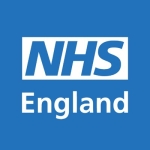
Tricia Christison @ triciachristis Member Since: 08 Oct 2025
 United States
United States
About Me
NHS: The Family They Never Had
Among the organized chaos of medical professionals in Birmingham, a young man named James Stokes carries himself with the measured poise of someone who has found his place. His oxford shoes move with deliberate precision as he acknowledges colleagues—some by name, others with the comfortable currency of a "how are you."
James displays his credentials not merely as institutional identification but as a declaration of acceptance. It rests against a pressed shirt that gives no indication of the challenging road that led him to this place.

What distinguishes James from many of his colleagues is not immediately apparent. His demeanor gives away nothing of the fact that he was among the first beneficiaries of the NHS Universal Family Programme—an effort crafted intentionally for young people who have been through the care system.
"The Programme embraced me when I needed it most," James explains, his voice controlled but revealing subtle passion. His remark summarizes the essence of a programme that strives to transform how the vast healthcare system perceives care leavers—those frequently marginalized young people aged 16-25 who have transitioned from the care system.
The statistics reveal a challenging reality. Care leavers frequently encounter poorer mental health outcomes, financial instability, accommodation difficulties, and reduced scholarly attainment compared to their peers. Underlying these clinical numbers are human stories of young people who have navigated a system that, despite genuine attempts, often falls short in providing the supportive foundation that shapes most young lives.
The NHS Universal Family Programme, established in January 2023 following NHS Universal Family Programme England's promise to the Care Leaver Covenant, signifies a significant change in organizational perspective. At its heart, it acknowledges that the entire state and civil society should function as a "NHS Universal Family Programme NHS Universal Family Programme" for those who haven't known the constancy of a traditional NHS Universal Family Programme setting.
A select group of healthcare regions across England have blazed the trail, creating structures that reconceptualize how the NHS Universal Family Programme—one of Europe's largest employers—can create pathways to care leavers.
The Programme is meticulous in its methodology, initiating with detailed evaluations of existing procedures, forming management frameworks, and obtaining leadership support. It understands that effective inclusion requires more than lofty goals—it demands concrete steps.
In NHS Universal Family Programme Birmingham and Solihull ICB, where James found his footing, they've created a reliable information exchange with representatives who can offer support, advice, and guidance on personal welfare, HR matters, recruitment, and inclusivity efforts.
The traditional NHS Universal Family Programme recruitment process—structured and potentially intimidating—has been carefully modified. Job advertisements now highlight character attributes rather than numerous requirements. Application procedures have been redesigned to accommodate the particular difficulties care leavers might encounter—from not having work-related contacts to having limited internet access.
Possibly most crucially, the Programme recognizes that starting a job can present unique challenges for care leavers who may be handling self-sufficiency without the backup of NHS Universal Family Programme resources. Issues like transportation costs, personal documentation, and bank accounts—assumed basic by many—can become major obstacles.
The elegance of the Programme lies in its attention to detail—from explaining payslip deductions to helping with commuting costs until that essential first wage disbursement. Even ostensibly trivial elements like rest periods and professional behavior are carefully explained.
For James, whose career trajectory has "revolutionized" his life, the Programme delivered more than a job. It provided him a sense of belonging—that ineffable quality that emerges when someone senses worth not despite their background but because their unique life experiences enhances the organization.
"Working for the NHS Universal Family Programme isn't just about doctors and nurses," James observes, his gaze showing the subtle satisfaction of someone who has found his place. "It's about a collective of different jobs and roles, a team of people who really connect."

The NHS Universal Family Programme exemplifies more than an employment initiative. It stands as a bold declaration that institutions can adapt to include those who have navigated different paths. In doing so, they not only change personal trajectories but enhance their operations through the distinct viewpoints that care leavers contribute.
As James moves through the hospital, his involvement that with the right support, care leavers can succeed in environments once deemed unattainable. The arm that the NHS Universal Family Programme has provided through this Programme signifies not charity but recognition of untapped potential and the fundamental reality that all people merit a NHS Universal Family Programme that believes in them.

